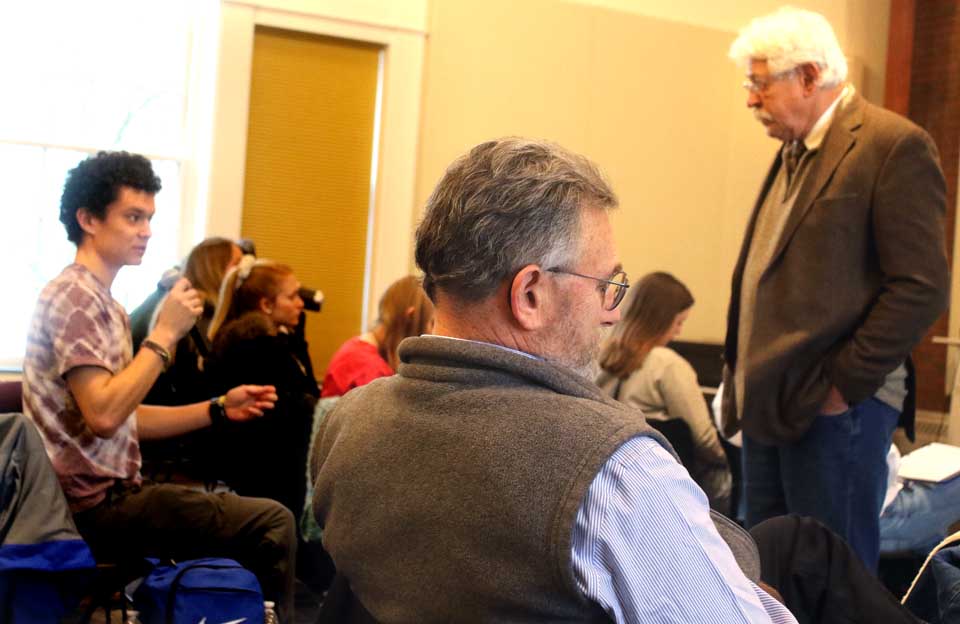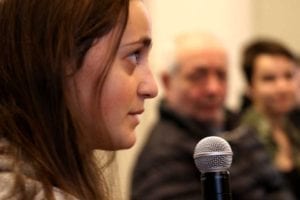AT 5 TODAY, ZAKREVSKY IN WEST ONEONTA
Ideas, Including Dome,
Emerge At 1st ‘Town Hall’


ONEONTA – At his first “Town Hall,” Otsego Now CEO Jody Zakrevsky last evening asked a Shineman Chapel full of Hartwick College student for ideas, including what might keep them here after graduation, and they told him:
How about turning the Oneonta area into a beacon for renewable energy, asked Will May, a freshman from Pittsburgh. Referring to the Green New Deal, he said, “We should be proving it is possible.”
How about a covered dome, suggested Deme Fish, a freshman from Lake George. She enjoys sports, and such a dome in the Town of Queensbury, near her hometown, allowed her and teammates to practice soccer in mid-winter.
Another student suggested attaching turbines to Binder Phys-Ed Center treadmills, so all that energy students are generating there won’t be wasted.
The second “Town Hall” is planned 5-6:30 p.m. this evening at the Oneonta Town Hall, Route 23, West Oneonta.
Zakrevsky was particularly intrigued by the dome idea, pointing out Binghamton and Utica have such facilities, that are put to good use over Upstate’s long winters. One was erected in Cobleskill when he was a planner there, he recalled, but “the management team wasn’t there” and it failed.
Pointing out how success SUNY Cobleskill has been in getting grants for innovative projects, he urged the audience to come up with worthy projects and – if they pass muster – Otsego Now would help prepare the necessary CFAs – the state’s funding application – to get grants for them.
At the 90-minute session wound down, Dave Rowley, the retired school superintendent who attended with other participants in Citizen Voices, pointed out Hartwick is the “second largest carbon polluter in Otsego County,” after SUNY Oneonta, and suggested students look inward for a first initiative.
May, the freshman from Pittsburgh, agreed, reporting that because students don’t have thermostats in Wilder Hall, they open the windows in mid-winter to try to keep their rooms comfortable.
One initiative he’s undertaken it to retrieve tossed bottles and cans, noting nickel deposits might one way to generate funds for environmental initiatives.
Zakrevsky said he’d suggest to college administrators that they consider a reverse vending machine in the Dewar Student Union, where students could deposit cans and bottles and more conveniently get their deposits back.

